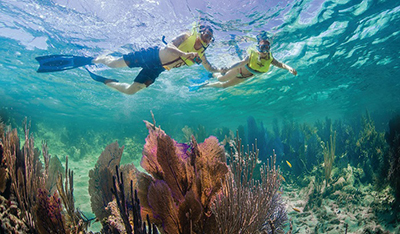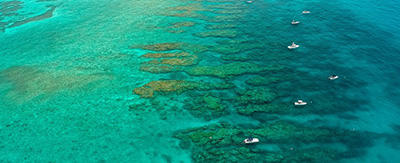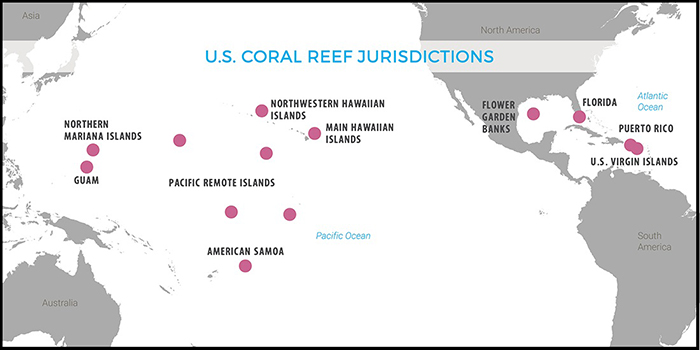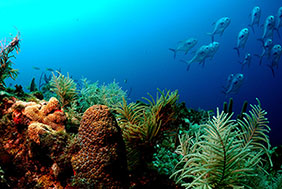-
Home
-
Data & Publications
-
Regional Portals
- About Regional Portals
- Florida
- Navassa Island
- Puerto Rico
- Flower Garden Banks
- U.S. Virgin Islands
- American Samoa
- Commonwealth of the Northern Mariana Islands
- Federated States of Micronesia
- Guam
- Main Hawaiian Islands
- Republic of the Marshall Islands
- Northwestern Hawaiian Islands
- Republic of Palau
- Pacific Remote Island Areas
-
CRCP Activities
- Glossary
Coral Reef Ecosystem Goods and Services Valuation

Coral reefs provide a variety of important services and benefits such as food, coastal protection, recreation opportunities, habitat for a variety of species, tourism, cultural heritage, and social connectedness through a sense of place. However, increasing population growth rates along with economic and industrial development, unsustainable fishing, land-based pollution, global forces from climate change, coral bleaching, coral disease, among others, have resulted in unprecedented pressure on coral reefs.
These competing uses of the coastal-marine environment and issues at local and global scales merit asking how to ensure the longevity of these special ecosystems that provide incredible value to society, such as: How much are coral reefs worth to society? How much do people care about coral ecosystems? Can we demonstrate the value of these unique ecosystems and account for what we stand to lose if they are irreparably damaged? The answers to these questions have the potential to inform the optimal level of protection, the need for funding for interventions that combat coral disease and other threats to reef health, and even levels of insurance under new models that tie local development to the sustained longevity of corals for their coastal protection services.

NOAA's Coral Reef Conservation Program is leading a comprehensive Coral Reef Ecosystem Goods and Services Valuation project to provide updated, defensible monetary values of U.S. coral reef ecosystem services in Florida, Puerto Rico, U.S. Virgin Islands, American Samoa, Guam, Hawai'i, the Commonwealth of the Northern Mariana Islands, Pacific Remote Island Areas, and Flower Garden Banks National Marine Sanctuary.

Project Timeline:
Year 1 (April 2021 - March 2022):- Conducted a comprehensive review of the coral reef ecosystem service literature
- Performed a gap analysis highlighting areas and services for future consideration
- Held a series of workshops with local stakeholders and socioeconomic, academic experts to inform project planning and guide activities in year two and beyond
- Develop an approach to incorporate cultural ecosystem services
- Conduct valuation for Florida and Guam
- Conduct valuation for Hawai'i, Puerto Rico, and the Pacific Remote Island Areas
- Conduct valuation for American Samoa and U.S. Virgin Islands
- Conduct valuation for The Commonwealth of the Northern Mariana Islands and Flower Garden Banks
2001-2011 Valuation Studies:
- Summary Report: The Economic Value of U.S. Coral Reefs
- The Total Economic Value of U.S. Coral Reefs: A Review of the Literature
Outreach Products:
- The Benefits and Economic Impacts of Florida's Coral Reefs
- Fast Facts on Coral Reefs
- Three Socioeconomic Projects Underway In the U.S. Territories
Related Links:
- Economic Valuation of Artificial and Natural Coral Reefs in Southeast Florida
- Protecting Hawaiian Corals by Prioritizing Land Conservation Efforts
- Coastal and Ocean Economy
- Puerto Rico Coral Reef Ecosystem Valuation - Project Overview
- Economic Impacts of Recreational Fishing, SCUBA Diving, and Snorkeling on Florida's Coral Reefs


